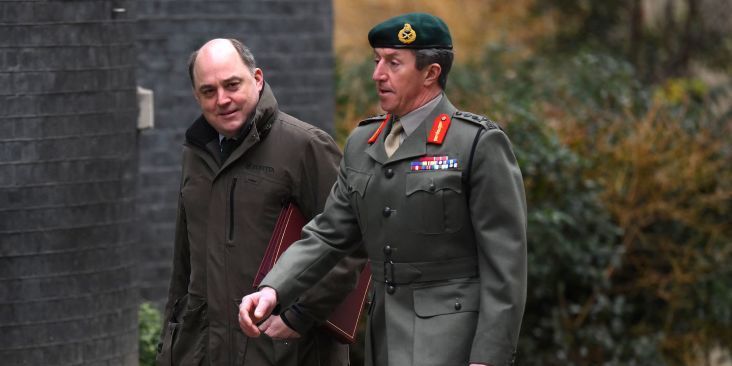The Prime Minister’s announcement this week of an increase in UK defence spending from 2 per cent to 2.5 per cent of GDP by 2030 was unexpected. Debate continues on whether this is indeed, as Sunak claimed in Poland, ‘historic’, or sufficient for the UK to ‘re-arm’ in the face of ‘real risks to the United Kingdom’s security and prosperity’. All this overshadowed a significant government appointment: for the first time, a serving senior military officer is to be the UK’s national security adviser (NSA).
In the summer, General Gwyn Jenkins, currently serving as the Vice Chief of the Defence Staff, will become the UK’s 7th adviser on national security to the prime minister since the post was created by David Cameron in 2010. Tom Tugendhat, the security minister, said on X that Jenkins would bring ‘rigour and… drive to a vital role’. This current government likes to view security through a harder, more realist lens than its predecessors, to the dismay of some – Jenkins’s appointment reflects that.
Last year, Sir Tim Barrow, the current NSA, usefully summarised what the role involves: provide advice to the prime minister; lead the Cabinet Office national security team; bring together the UK national security community; cultivate international partnerships; and, crucially, act as secretary to the National Security Council (NSC). There have been repeated recent recasting of the NSC. In 2018, to embed the lessons of the Chilcot Iraq inquiry, the then NSA initiated something called the Fusion Doctrine. In 2021, in the wake of the Covid pandemic, the UK Integrated Review demanded improvements and more accountability. In 2023, following the hasty evacuation from Afghanistan and Russia’s illegal invasion of Ukraine, the UK Integrated Review Refresh said the NSC must oversee a new ‘strategic cycle’ to deliver more and work better across different government departments.
Jenkins wears his rank lightly
These repeated demands for improvements indicate the NSC, despite the efforts of many dedicated public servants, is not yet functioning properly. Parliament said as much in 2021. Liz Truss characteristically scrapped the NSC entirely in 2022. And although Sunak brought it back, buried in his announcement this week were familiar demands for ‘better coherence’
This will now be Jenkins’ task. Widely respected, softly spoken, he has a very particular set of skills acquired over a distinguished military career of consistently disrupting the status quo. He was the first Royal Marine to serve as director of the special forces. He was the first military officer to work as a deputy national security adviser, earning plaudits from his civilian seniors. He jumped straight from Major General to General, having provided much of the Naval Service’s intellectual heft to the 2021 Integrated Review, leading to the UK placing renewed importance on the maritime domain in our defence policy.
It is clear that Jenkins has Sunak’s trust as first-rate ‘man of push and go’. (A phrase used by his predecessor Lloyd George in 1915 to describe able, professional, and energetic individuals brought into central government to deliver change and efficiency.) Jenkins will face challenges to deliver the integration of government national security efforts across multiple departments (it’s currently too spread out) and to move the NSC beyond just being a forum for co-ordination in Whitehall. He will face vested departmental interests, budget fights, confused lines of authority, and civil servants with innate distrust of the military. Fortunately, he wears his rank lightly. Many senior officials will bend Jenkins’ ear to gain advantage. He will also have to carefully manage his enduring relationship with the military – in particular the army, still bruised by his rapid rise, concerned of his close ties with Admiral Radakin, the chief of defence staff – and suspicions that his maritime background will skew his advice to the prime minister at their expense.
The boundary between foreign and domestic policy is becoming more porous, and national security is consuming ever greater attention from the prime minister. Jenkins will have to decide how widely to cast his gaze; whether to be focused on traditional security, defence, development, and foreign policy, or to also include national resilience or, as argued by a recent pamphlet by retired Foreign Office mandarins, to include: ‘a broader set of international objectives including promotion of prosperity and challenges like climate change and economic development alongside security’. Whatever his focus, all agree he will need a beefed-up central staff to cope with the demands.
But his greatest challenge of all will be political. The role of NSA and NSC in the UK have only existed under a Conservative government. The Labour party has promised to conduct a ‘Strategic Defence and Security Review’ if it wins the next election. It remains to be seen whether they will want their own NSA to guide this process.






Comments